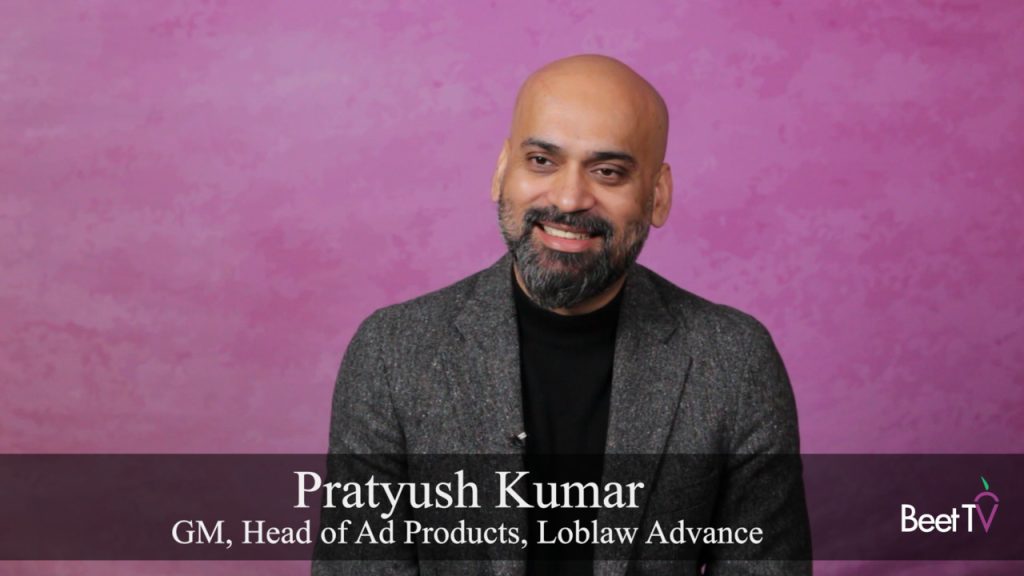CANNES – In a media world saturated by fragmented viewing platforms and real-time performance metrics, premium video still has a critical edge: brand safety, transparency and superior recall.
But to stay competitive with social platforms, it needs to become just as easy to buy, measure and scale, said Mark McKee, executive vice president and general manager of Comcast’s FreeWheel.
He made the case that premium video, especially connected TV, remains a powerful environment for advertisers seeking both performance and brand integrity, in this interview with Lisa Granatstein, editorial director of Beet.TV, at the Cannes Lions International Festival of Creativity.
“The power of premium video is really anchored on its ability to be brand-safe and quality,” McKee said. “It starts with real people watching the content, but also other mechanisms. It’s transparent in the way it’s delivered. It has a quality viewing experience overall.”
Compared with other digital formats, McKee said premium video consistently outperforms, especially in brand recall.
“Premium and CTV and TV overall does 2x better in driving brand recall,” he said.
Solving fragmentation with standards
As viewer habits shift across hundreds of screens, apps and devices, McKee said industry-wide standardization is critical.
“A consumer can watch a piece of content on more than 400 different end points… and so that’s hard. That’s hard for publishers, and it’s certainly hard for brands,” he said.
To address this, FreeWheel is investing in content standards and identity solutions to simplify buying and measurement. Its identity network, McKee noted, has already shown “three to four times better match rates than what we’ve seen in the competition.”
Sports: Live and growing
McKee also highlighted the expanding role of live sports in FreeWheel’s strategy, calling it one of the most powerful drivers of attention and fandom.
“It is probably the thing that is most engaging when we think about a consumer and fandom,” he said.
By enabling programmatic access to events like the Olympics, FreeWheel has helped bring new brands into the TV ecosystem.
“It increased by 90% the number of brands that have participated in the Olympics,” McKee said, calling this a “meaningful differentiation” as digital-native advertisers begin to explore TV.
Borrowing from social playbooks
To remain competitive with social media’s speed and simplicity, FreeWheel is working to make TV advertising as seamless.
“The industry coming together… to make it easy to buy and aggregate the scale of what social platforms can provide” is part of the strategy, McKee said, referencing FreeWheel’s Universal Ads initiative.
Universal Ads aims to combine the scale of premium video platforms (such as NBC, Paramount and Warner Bros.) with the frictionless workflows and targeting capabilities that brands expect from digital buys.
Measurement mandate
McKee acknowledged that TV’s historical weakness has been proving outcomes as quickly and clearly as digital platforms.
“TV has always delivered full funnel results for brands and advertisers. Unfortunately, we have not told the best stories and articulated the power that it has,” he said.
But that’s changing. A recent FreeWheel study found that six out of 10 advertisers would increase their TV budgets if they could more clearly tie ad exposure to outcomes.
“That’s our opportunity. That’s our call to action for the premium TV ecosystem,” McKee said.
As the advertising world evolves, FreeWheel is betting that premium video, equipped with better tools, smarter data and easier workflows, can do more than just keep up with social. It can lead.
You’re watching “Proof of Performance: The Power of Premium Video” a Beet.TV Leadership Series at Cannes Lions 2025, presented by Comcast Advertising. For more videos from this series, please visit this page. You can find all of our coverage from Cannes Lions 2025 here.














































